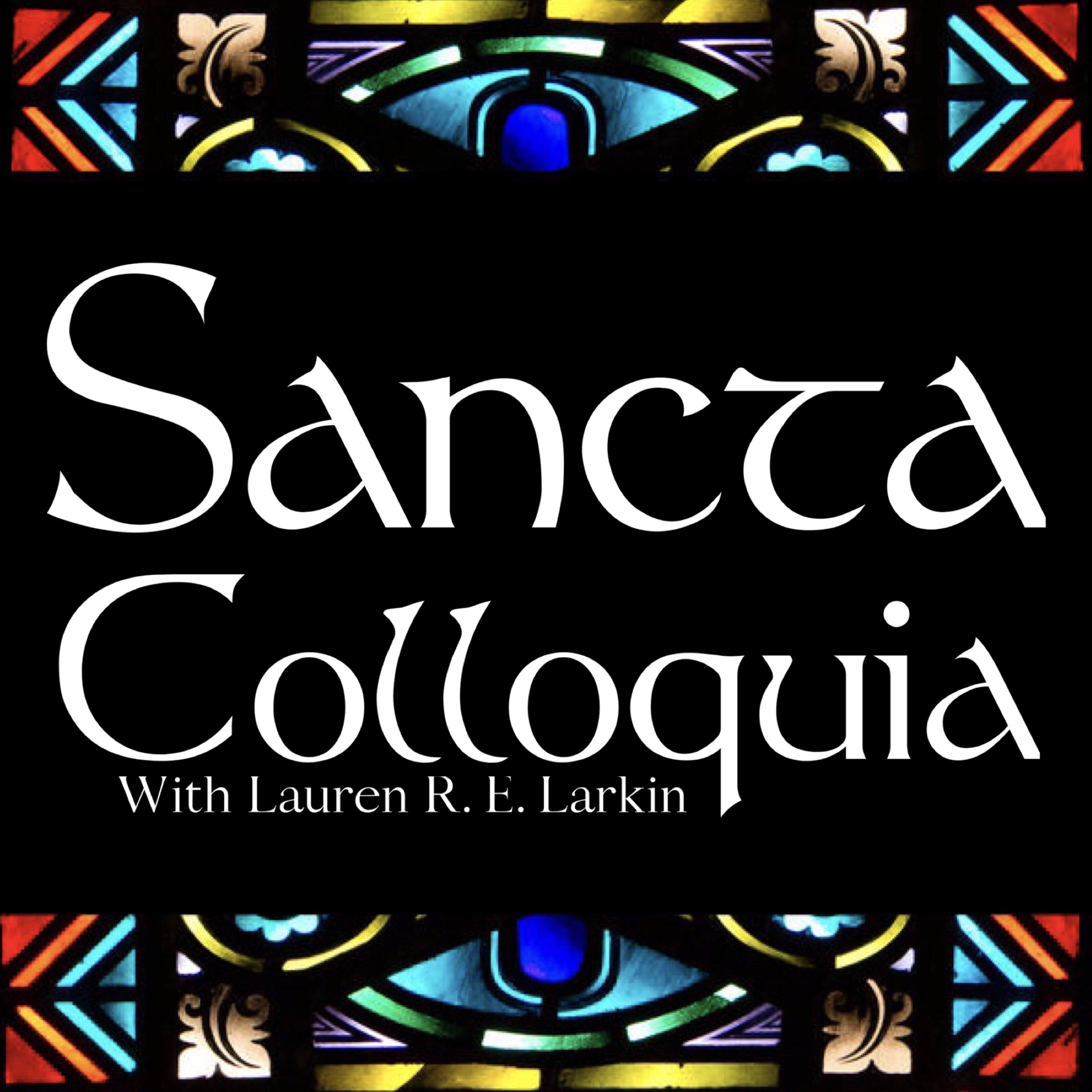Episodes
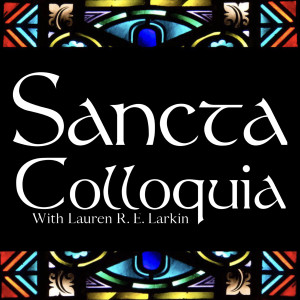
Friday Dec 31, 2021
Changing the Narrative
Friday Dec 31, 2021
Friday Dec 31, 2021
Sancta Colloquia Episode 405 ft. Dr. Dirk von der Horst
In this episode of Sancta Colloquia I get to have a conversation with a dear friend (seriously, he’s walked with me through some tough times), an excellent scholar, a compassionate human, and all time great addition to the world Dr. Dirk von der Horst (@dirkster42_). The discussion is a bit different than normal because when I discussed with Dirk coming on the show, he then mailed me three books to read: Stand Your Ground by Kelly Brown Douglas, Doing Theology in the Age of Trump edited by Jeffrey W. Robbins and Clayton Crockett, and Religion and Violence by Robert McAfee Brown. At first I thought that maybe he was under the impression that I was enrolling in one of his classes. Far from it, in reality. The books were to form the skeleton on our conversation while allowing Dirk a means to address and engage with a topic he’s very passionate and informed about: race, religion, whiteness, and violence. And it’s these things we discuss in the hour we talk to each other.
Dr. von der Horst is the consummate teacher, always with an eye toward edifying anyone he’s engaged with whether student, friend, or family member; this is also why he sent me those three books mentioned and listed above. And this is something that stood out to me while we were talking. Dirk is eager to assist others in changing their narrative, changing the words they use, changing the way they think. It’s why he does the job he does, and why he’s good at what he does. Good teachers change narratives or they assist in the process by which we change the narratives and the scripts we’ve lived too long with. And the most striking thing for me in this conversation is the repeated emphasis on getting back to the thing that clogs up our storm drains (a reference from the episode, you’ll have to listen to understand more, *chuckles).
Excited? You Should be.
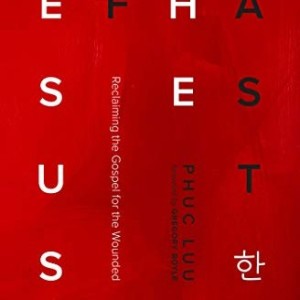
Monday Nov 29, 2021
”Jesus of the East”
Monday Nov 29, 2021
Monday Nov 29, 2021
Sancta Colloquia Episode 404 ft. Dr. Phuc Luu
In this episode of Sancta Colloquia, I have the honor and privilege to interview scholar, teacher, and theologian, Dr. Phuc Luu (@phuc_luu). One of the primary themes of this conversation is that we still need to do better in this world if we are going to make our churches and cities and states and country environments where all people thrive and have access to their livelihood. Dr. Luu exhorts me and thus you to reconsider theological dogmas and doctrines about the cross that we've (too) long held to be the standard because they are causing so much violence to those who, to quite Dr. Luu, are the "sinned-against" (a term well explained in the conversation). The formerly "tried and true" claims made by those who have of the powerful and privileged do not hold water for those who are suffering under the weight and burden of oppression by the powerful and privileged. There is a need to reconsider so much that white western Christianity has taken for granted so that we can stand in solidarity with those who are oppressed and marginalized. This conversation takes many twists and bends, but the theme is consistent: there is no time like now to do better so that all our brothers and sisters in the world may experience the truly liberative power of divine love made manifest in the incarnate good word, Jesus the Christ, by the power of the holy spirit--not by means of making everyone Christian, but by being better followers of Christ who so identified with those who suffer in the world at the hands of the powerful.
Excited? You should be.
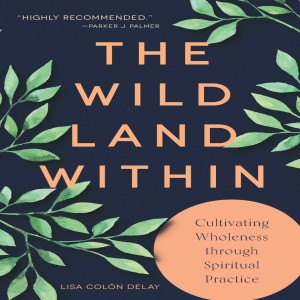
Friday Aug 13, 2021
Whole People; Whole World
Friday Aug 13, 2021
Friday Aug 13, 2021
Sancta Colloquia Episode 403 ft. Lisa Colόn Delay
In this episode I had the honor of speaking with Lisa Colόn DeLay (@LisaDelay) about her book, The Wild Land Within, which was published this past spring. While our conversation is based on the contents of her book, Lisa's wealth of knowledge and grasp of both theology and the pastoral brings us to weave and wend throughout many of life's struggles and blessings. Lisa brings so much love and grace to this conversation, it was a joy to talk with this new friend. Lisa is also very passionate about human beings. This passion is not only communicated in this conversation with me, but is on every page of her text. She loves you and wants you to know it. One of the unique things I want to draw attention to here is that Lisa's text is many parts Spiritual and Practical in its application of theology and pastoral guidance, but the underlying strength of the text is her interlocutors. She's not relying on the standard Eurocentric white male theologians many of us have been trained to revere and frequently reference--if they didn't say it, then how dare you say it?! Lisa participates in dismantling this septic trend and in overturning the status quo through her conversations with profound scholars like: George Tinker, Barbara A. Holmes, James H. Cone, Wilda C. Garnet, Ada Maria Isasi-Diaz, Howard Thurman, Ibram Kendi, Phuc Luu, Gustavo Gutierrez, and Evagrius Ponticus (345-400 CE). It was such an honor to talk with Lisa, I hope you enjoy the conversation as much as I did.
Excited? You should be.
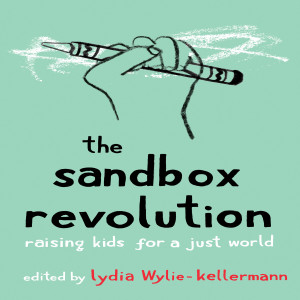
Monday Aug 02, 2021
Revolution Beautiful
Monday Aug 02, 2021
Monday Aug 02, 2021
Sancta Colloquia Episode 402 ft. Bp. Lydia Wylie-Kellermann
I had the pleasure of talking a new friend in the revolution for a better world: Lydia Wylie-Kellermann (@lydiaiwk). We talk about her work at Geez Magazine, her upbringing and local activism in Detroit, MI, and her newest book project released into the world: The Sandbox Revolution. Lydia brings profound experience and insight to the normal discussion about what revolution is and what it looks like to live revolutionarily. She doesn't confound her audience by over complicating things; rather, she takes very complicated things and makes them easy and hands them in digestible portions to everyone who has is eager for something more. Lydia brings home to us a deep desire for something more than what we have: a world where love and life and liberty are the trademark characteristics of all people and the creation itself. Using her own life, she shares her stories and invites us in to participate with her in this revolution for something more beautiful.
Excited? You should be.
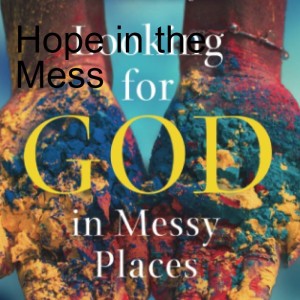
Friday Jun 18, 2021
Hope in the Mess
Friday Jun 18, 2021
Friday Jun 18, 2021
Sancta Colloquia Episode 401 ft. Bp. Jake Owensby
This episode with Bp. Jake Owensby (@jakeowensby) marks the start of Seaon FOUR. That's right, I'm entering in my fourth year of hosting interview. This season will open with a few interviews with authors; how the season will close will be a, well, let's say: it will be a "self-disclosing" event. Stay Tuned!
In this first episode of season four, I had the honor of talking with my former bishop, Bishop Jake Owensby of the diocese of Western Louisiana of The Episcopal Church. This interview focuses on his most recently published book: Looking for God in Messy Places: A Book about Hope. We get to talk about why hope and why now? Bp. Owensby articulates well where his source of hope comes from, "Being the beloved in the eye of the Lover and that's where my hope comes from. I am deeply loved." It's this being and knowing and experience deep divine belovedness that motivates Bp. Owensby's work in this text as a message to help other people. Principally, Bp. Owensby communicates about our proclamation (either written or preached), "There's one message; it's the resurrection. That's the message. That's it...it's God's mighty work!" And it true; he's not lying. Holding the story of Christ's resurrection in one hand as we walk with people with the other, helping them and standing in solidarity with them, is the key to comprehending what it means to have hope when hope seems pointless even lost. If we weed out this very story of resurrection from our proclamation because it's "not real" or "could never happen"--statements more about our logic and reason and not God's might work--we lose one of the most cataclysmic narrative movements of divine life usurping death's supposed last word. It's here in the encounter with God in the event of faith that, for Bp. Owensby, where "All of [the] ways in which we've allowed or simply had to allow a way of living die and a new way of living emerge, that's resurrection; that's hard work." Chaos, turmoil, fear, death, all of it has been stripped of it's claim to the last word in this divine mighty work of God in the resurrection. Thus, we can have hope that what we see right now isn't all we see. That maybe the mess isn't messy but beautiful because in that mess there is God with us.

Friday Jun 11, 2021
Sacred Seminary Symposium
Friday Jun 11, 2021
Friday Jun 11, 2021
Episode 6: "Solidarity"
In this episode, Sabrina and I discuss Ada Maria Isasi-Diaz's book Mujerista Theology, specifically looking at chapter 5: "Solidarity: Love of Neighbor in the Twenty-First Century".
In this chapter Isasi-Diaz brings the word "Solidarity" under examination highlighting how often human beings, specifically those of us in the dominant culture, have a fondness for this word but miss the praxis aspect completely. Solidarity isn't just a nice feeling of community, but a legitimate standing with the oppressed groups, identifying with them. Not in the terms of becoming as the oppressed but in terms of standing with them as you are. This distinction is a difficult one to walk through, but it's necessary. In this discussion, Sabrina and I take up the mantle of Isasi-Diaz's definition of and ethical for solidarity, her criticisms of "charity", and her definition of sin as "alienation.
Sabrina and I discuss some of the primary themes of the chapter and drive home the recurring theme that our praxis as Christians matters...And as Sabrina reminds us at the end, it shouldn't be about "guns blazing" which leads to alienation but to listen and see what is necessary to communicate in that moment.
Here are some quotes from the chapter we look at specifically:
“From a Christian perspective the goal of solidarity is to participate in the ongoing process of liberation through which we Christians become significantly positive force in the unfolding of the ‘kin-dom’ of God. At the center of the unfolding of the kin-dom is the salvific act of God. Salvation and liberation are interconnected. Salvation is gratuitously given by God; it flows from the very essence of God: love. Salvation is worked out through the love between God and each human being and among human beings. This love relationship is the goal of all life--it constitutes the fullness of humanity.”
Page 89
“But why are the poor and the oppressed those with whom we must be in solidarity? Why does overcoming alienation demand a preferential option for the oppressed? The reason is not that the poor and the oppressed are morally superior. Those who are oppressed are not personally better or more innocent or purer in their motivations than the rest of us. The preferential option at the heart of solidarity is based on the fact that the point of view of the oppressed, ‘pierced by suffering and attracted by hope, allows them, in their struggles, to conceive another reality. Because the poor suffer the weight of alienation , they can conceive a different project of hope and provide dynamism to a new way of organizing human life for all.’ This contribution , which they alone can give, makes it possible for everyone to overcome alienation. The preferential option for the poor and the oppressed makes it possible for the oppressors to overcome alienation, because to be oppressive limits love, and love cannot exist in the midst of alienation. Oppression and poverty must be overcome because they are ‘a slap in the face of GOd’s sovereignty.’ The alienation they cause is a denial of God. Gutierrez refers to the profoundly biblical insight of the Bolivian campesino: ‘an atheist is someone who fails to practice justice toward the poor.’”
page 91
"Mutuality of the oppressor with the oppressed also starts with conscientization. To become aware that one is an oppressor does not stop with individual illumination but requires the oppressor to establish dialogue and mutuality with the oppressed.[..] Oppressors who are willing to listen and to be questioned by the oppressed, by the very action of listening begin to leave behind their role as oppressors and to become 'friends' of the oppressed."
Page 95
"But this does not mean that we can wait until we have a perfect strategy or a perfect moment to act. No strategy is perfect. There are always internal problems and inconsistencies that need to be worked out. All strategies involve risk. This should never keep us from acting; it should never delay our work to try to establish mutuality, to create a community of solidarity committed to change oppressive structures, a community in which no one group of oppressed people will be sacrificed for the sake of another. This is what mutuality, the strategic component of solidarity, will accomplish."
Pages 98-99

Thursday Jun 03, 2021
Sex and Revolution Pt IV
Thursday Jun 03, 2021
Thursday Jun 03, 2021
Sancta Colloquia Episode 309 ft. James Prescott
In this episode, the last episode installment of #SexAndRevolution, my friend, James Prescott (@JamesPrescott77) joins me to talk about what it means to be a "highly-sensitive" person. Being a "highly-sensitive" person is more than having feelings about things (and sometimes all the things); it incorporates being in tune to one's environment in such a way that the body--yes, the flesh, muscle, ones, organs of your existence--pick up on dialogue and communication that isn't with words but with vibes. Navigating the world as a highly-sensitive person can be tricky, and James does well to communicate with me about how he has navigated the material world and the virtual world as a highly-sensitive person. The first thing you should know is that James stresses that it takes boundaries. You might not look to highly-sensitive people to have the clearest boundaries but they do because they need to and this makes them strong. James articulates excellently the beauty and strength of being highly sensitive person; truly it's a beautiful thing to be able to "tap-into" that "sixth-sense" and navigate from there. My favorite thing about this episode is that James has some very pastoral things to say to those of his fellow journeyers who are also highly-sensitive (to both the old and the young!): you are not alone. So, come listen to James talk with me about what it's like to be highly-sensitive and the profundity therein. And be encouraged, Beloved. If you find yourself on of us--the highly-sensitive--press in...press into yourself and see the beauty of your present self as it tunes into the world and people around it. And, maybe, buckle up, too.

Friday Apr 23, 2021
Sex and Revolution Pt III: The Aligned Self
Friday Apr 23, 2021
Friday Apr 23, 2021
Sancta Colloquia Episode 308 ft. Rachel Cohen
In part two Rachel goes into depth about the role a robust theology of suffering plays in the life of a queer person and how that theology is used by the dominant culture group to oppress and dominate the lgbtqia+ community. She shares more of her story and her journey while incorporated the work of Dr. Miguel de la Torre (Doing Ethics from the Margins) through out her sharing. We talk about echo chambers, shame, fear of being ostracized and exiled from the group...things that shouldn't be synonymous with Christians but often are. In group and out group is the way the dominant group maintains its control and primacy, without the fear of exile...or hell (!) how else do you keep the dissenters quiet? To be honest, the episode is long, so there's no way I've done it justice in this summary. So, find some time, crank it up to 2x speed and jump in. It's a great conclusion to part III of #sexandrevolution

Wednesday Feb 17, 2021
Sex and Revolution Pt III: The Aligned Self
Wednesday Feb 17, 2021
Wednesday Feb 17, 2021
Sancta Colloquia Episode 308 ft. Rachel Cohen
In this episode, my friend, Rachel Cohen (@pwstranger), tells me her story. As I make mention of in the introduction, Rachel and I have been friends for the better part of a decade. Our paths have overlapped and split an overlapped again. We share some of that story in the episode, so I won’t go into detail here. Rachel also spends time throughout the episode telling her story of her self-alignment and realignment about her sexuality and embodiment with what she believed and was taught. Rachel’s story is unique and one that is best in her voice, so I won’t go into detail here about that either. What I will say about this episode is that Rachel and I cover good ground looking at the capitalization of self-gaslighting to peddle a false gospel and how we can monetize our shame and guilt for likes and retweets and shares, how certain schools of popular theology use the theme of brokenness and failure as a means of self-justification, and how the freedom of confession can be freeing for a moment and turn into putridness like manna kept longer than commanded. Rachel mentions that for her (and I’m guessing for many other people) there is a perception of thriving that is disconnected from the inner self. We can present as thriving while on the inside the core of the person is being suffocated and starved. The way this misalignment of the self persists is by controlling what information is accessed by the self. In other terms, you are dunked deep into the echo-chamber and held down so that liquid is your self’s amniotic fluid from which you can never be born. But is this actual “thriving”? No, it’s a perception of thriving according to the rule and approval of those around you. To actually thrive necessitates an ability to be *yourself* even in the midst of encountering new information, new people, and even information and people you disagree with and that/who disagree with you. You cannot find *your* voice if you are forced to speak a certain way, so gaining alignment and having “integrity”, Rachel explains, necessitates finding your voice for yourself and to come to your conclusions. No one gets to tell you what to think—even if you are informed by teachers and leaders and mentors, you decide what you are going to think. This ownership of thought is important especially when engaging with theology which is a form of human meaning making, as Rachel explains. And it’s important because here you can distinguish between shame that is healthy conviction and your own conviction because you transgressed *your* own boundary and shame that is destructive because it’s imposed on you by an external system. But this is only the first part of our conversation…there’s part II. So, start listening here and then get ready for part II…
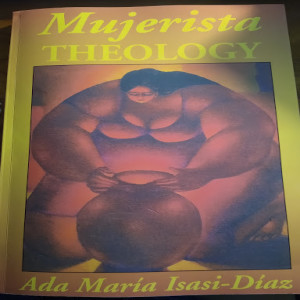
Sunday Jan 17, 2021
Sacred Seminary Symposium
Sunday Jan 17, 2021
Sunday Jan 17, 2021
In this episode, Sabrina and I discuss Ada Maria Isasi-Diaz's book Mujerista Theology, specifically looking at chapter 3: "By the Rivers of Babylon: Exile as a Way of Life".
Isasi-Diaz takes time to walk her reader through the structure and language of Psalm 137, a Psalm that marks her life journey as one of exile. Exile is not an easy place to live...when we think of exile we may think of one being a stranger in a strange land, but what if that strangeness is felt both at "home" and one different soil? Those of us accustomed to being "accepted" as part of the dominant and in group do not know this feeling of being neither here nor there. In a world that loves classifying bodies as "illegal" maybe we should stop and think about the strain of permanent exile?
Sabrina and I discuss some of the primary themes of the chapter and drive home the recurring theme that our praxis as Christians matters...even if small, Sabrina reminds us, those small acts have beautiful ripple effects.
Here are some quotes we look at specifically:
p37: “I learned how to do scientific exegesis. But no matter how much i tried, I was not able to acquire that disinterested objectivity that seems to be required for this discipline. There are two things that always troubled me about this. First, as a mujerista theologian, a Hispanic women’s liberation theologian, my hermeneutics of suspicion led me to conclude what most of the time thwart is considered objectivity is the subjectivity of dominant groups who can impose their understanding on others.”
p48: “Then, as I struggle to stand in solidarity with the poor in this country and in other parts of the world, Psalm 137 helps me sustain hope and maintain a countercultural posture while living in one of the richest countries in the world. This means, among many other things, not succumbing to consumerism, not caring so much about always having enough money that I am not generous in sharing what I have. It means that I have to influence other Christians, in whatever way I can, to understand and accept that we cannot call ourselves Christian if we do not avidly work so all can have what humans need in the struggle for fullness of life; food, shelter, healthcare, employment. Psalm 137 helps me to maintain a countercultural position by remind me to ‘live simply so other can simply live.’”
p38: "The point of entry is precisely the reader: she is the one who frames the questions being posed about the text and to the text; her hermeneutics will ultimately influence what the text is understood to have meant and meant today. Because scientific biblical studies ignore this, they cannot get at the real meaning of the Bible. Attempts to recover the original meaning in reality turn the Biblical text into an undiscovered archeological artifact."
p46 "The 'speech of assault', I believe, often becomes not cathartic but rather as a screen for the complicity (by omission if not by commission) of all of us in exile in what has happened in Cuba. The cries for vengeance can indeed function to absolve us falsely of all responsibility for the situation in our country."
p39fn7, "middle-class white woman": "One of the most shocking things that I came to realize many years later was that in coming to the USA my race had changed from white to "Hispanic."

